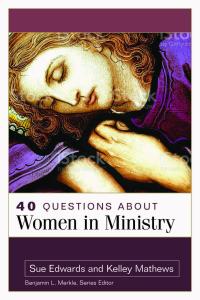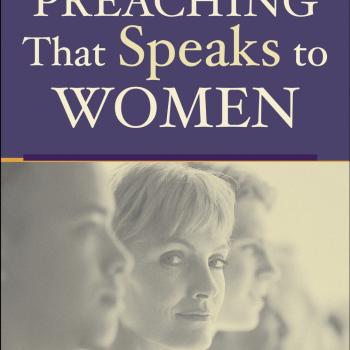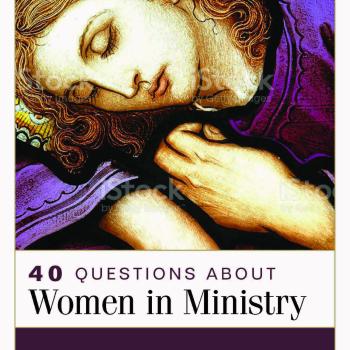 In some realms of the church, questions about women in leadership are moot. “Why are we still talking about this?” we’ve heard. “Is this topic really still a thing?”
In some realms of the church, questions about women in leadership are moot. “Why are we still talking about this?” we’ve heard. “Is this topic really still a thing?”
In other evangelical subcultures, we hear similar comments with the complete opposite meaning: “Why can’t people just accept what the Bible says? Why are we still debating this?”
Between the two extremes, people have questions. My co-author and I collected some of the most common ones and attempted not to answer them but to offer a pathway to understanding the variety of conclusions taught by opposing scholars. We (mostly) keep our opinions to ourselves, though occasionally we were unable to avoid evidence that led in one direction or the other.
In 40 Questions about Women in Ministry, released this week from Kregel Academic, Dr. Sue Edwards (Dallas Seminary) and I examine culture, scripture, history, language, philosophy, and sociology—a salad of scholarly disciplines that mix together in response to the big question of “What does the Bible say about women?”
Our Approach
A few early reviewers, such as Publishers Weekly, wonder if our balanced approach will satisfy readers. If you’re looking for another book to support your view, this probably won’t be it. If you want something to rail against because it’s radical, we can’t help you there either. (I suspect we will occasionally face both accusations, however.) What will you get? Explanations of scholarly conclusions on both sides of each question. Our goal is to help you know how, not what, to think about the biblical teaching surrounding women in leadership.
So if you’ve ever asked what 1 Timothy 2 means, or how Paul’s view of women in 1 Corinthians 11 and 14 jives with Romans 16, or what the prophetic role of Deborah and Huldah means for female spiritual authority, or whether creation order is significant, or . . . well, we cover those and 30+ other questions. And we do so in an accessible manner so that lay readers as well as pastors and students can grasp the nuances. You’ll see a little Greek and Hebrew, but we try to keep the complex stuff straightforward.
Pastors have given copies to their staff members, seminary students are checking it out as a resource for their coursework, and many other curious laypeople are picking it up to see how we handle their burning questions. If you grab a copy, we’d love to hear your feedback.
Available wherever books are sold. Like here* and here.












